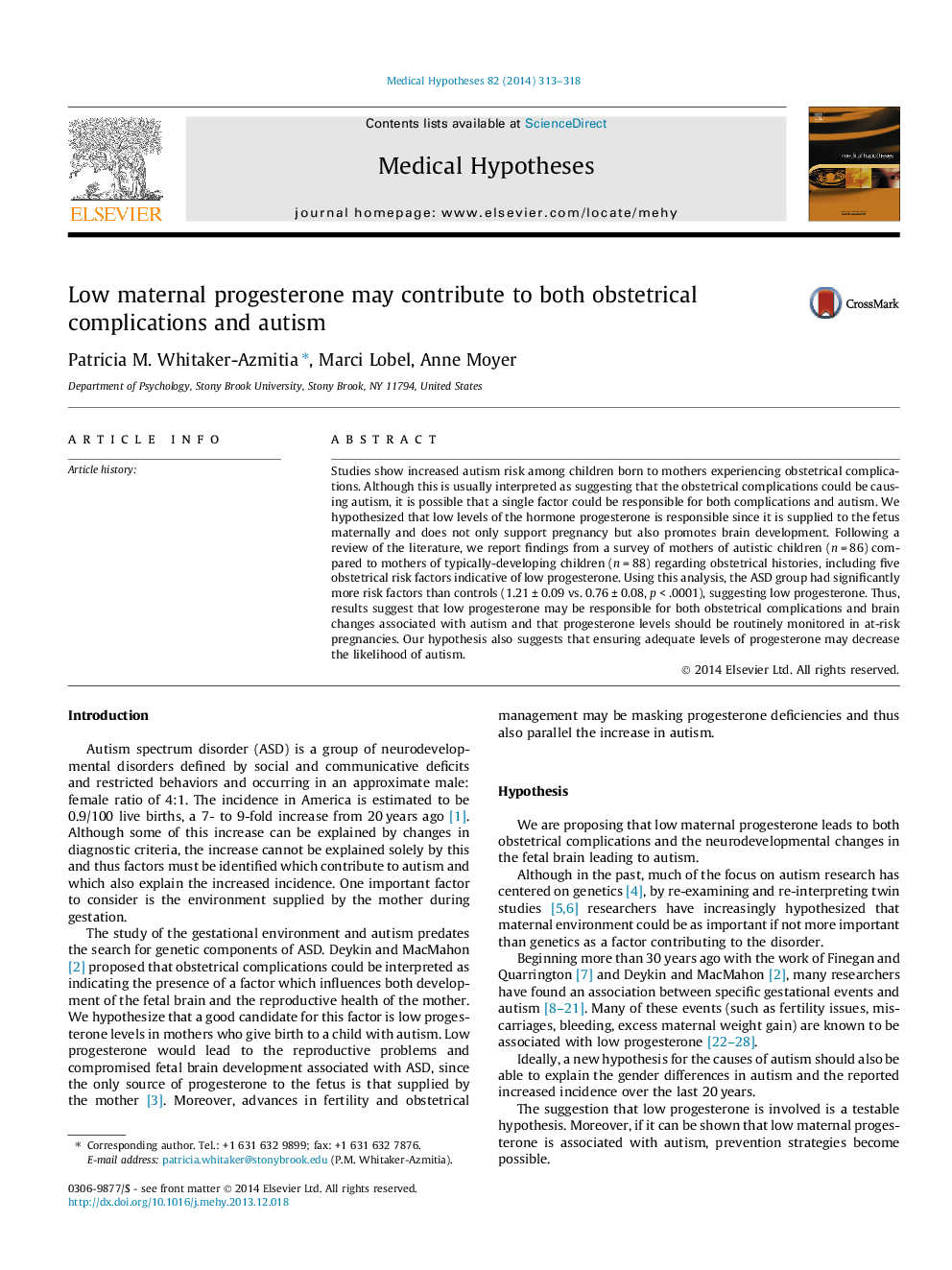| Article ID | Journal | Published Year | Pages | File Type |
|---|---|---|---|---|
| 5811842 | Medical Hypotheses | 2014 | 6 Pages |
Abstract
Studies show increased autism risk among children born to mothers experiencing obstetrical complications. Although this is usually interpreted as suggesting that the obstetrical complications could be causing autism, it is possible that a single factor could be responsible for both complications and autism. We hypothesized that low levels of the hormone progesterone is responsible since it is supplied to the fetus maternally and does not only support pregnancy but also promotes brain development. Following a review of the literature, we report findings from a survey of mothers of autistic children (n = 86) compared to mothers of typically-developing children (n = 88) regarding obstetrical histories, including five obstetrical risk factors indicative of low progesterone. Using this analysis, the ASD group had significantly more risk factors than controls (1.21 ± 0.09 vs. 0.76 ± 0.08, p < .0001), suggesting low progesterone. Thus, results suggest that low progesterone may be responsible for both obstetrical complications and brain changes associated with autism and that progesterone levels should be routinely monitored in at-risk pregnancies. Our hypothesis also suggests that ensuring adequate levels of progesterone may decrease the likelihood of autism.
Related Topics
Life Sciences
Biochemistry, Genetics and Molecular Biology
Developmental Biology
Authors
Patricia M. Whitaker-Azmitia, Marci Lobel, Anne Moyer,
